The yield of Arabica Coffee Bean in Yunnan Province of China the advantages and disadvantages of Yunnan small-grain coffee bean flavor
Most of China's coffee is produced in Yunnan Province; it borders coffee-rich countries such as Myanmar, Laos and Vietnam. About the history of Yunnan coffee, Qianjie has also been introduced before, here again, to help you recall. In 1904, the French missionary Tian Deneng introduced some plants to Yunnan, hoping to drink a small cup of coffee every day. So coffee plants were brought in from Myanmar, but on a smaller scale and more experimental. It was not until 1989 that Nestl é planted rust-resistant Catimor varieties in various parts of Yunnan that coffee became a major cash crop in China. Today, 98 per cent of China's coffee comes from about 90000 hectares of land in Yunnan and produces about 100000 metric tons of coffee a year. It can be said that Yunnan coffee is Chinese coffee. Of course, coffee crops are also grown in China, Fujian, Hainan and other areas, but due to the problem of altitude, most of the coffee beans are Robusta coffee beans, and the strong flavor is not suitable for the rising boutique coffee market. Yunnan, which can produce high-quality Arabica coffee beans, has become synonymous with Chinese boutique coffee.
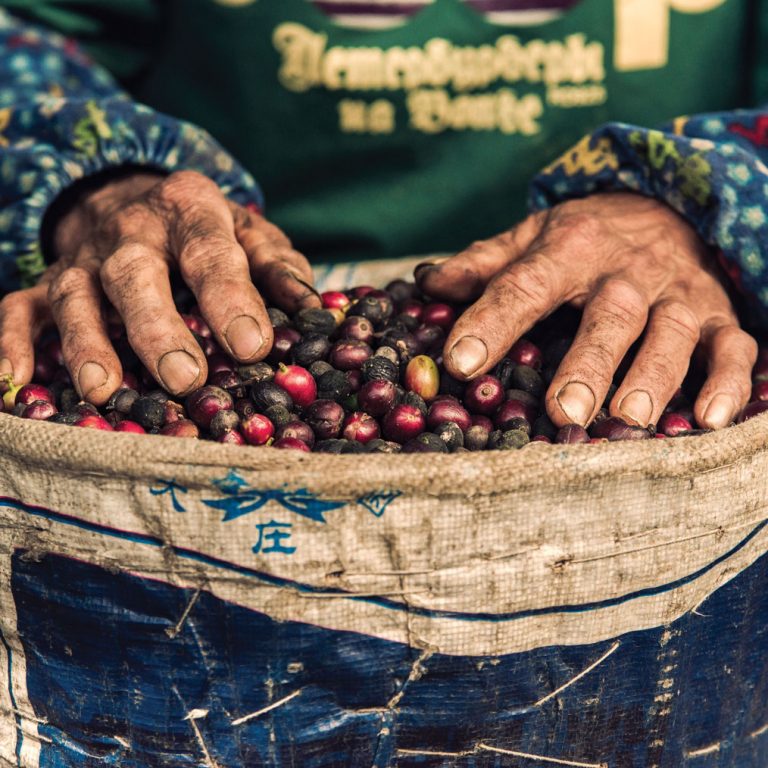
The advantage of Yunnan is that it is at a higher altitude than other coffee producing areas in China, with a range of about 80-1850 meters. The temperature difference between day and night is large, and Rain Water is also abundant, laying a good foundation for high-quality raw coffee beans. However, according to Qianjie, it is known that the elevations of most coffee plantations in Yunnan are generally hovering on the qualified line of high-quality coffee cultivation, that is, about 1000 meters. The main growing areas of coffee in Yunnan are in the southwest of Yunnan: Pu'er, Baoshan, Lincang, Xishuangbanna and so on. At present, the main varieties of Arabica coffee brewed in Yunnan are Katim and iron pickup, but last year, the landmark coffee bean species, Rose Summer, was pioneered in Baoshan, Yunnan. Qianjie does not make too many brief introductions about this matter: in 16 years, Lao Fan, the owner of Zuo Manor in Baoshan, Yunnan Province, planted the first batch of roses in Yunnan in the shade of the valley at an altitude of 1400-1600 meters.
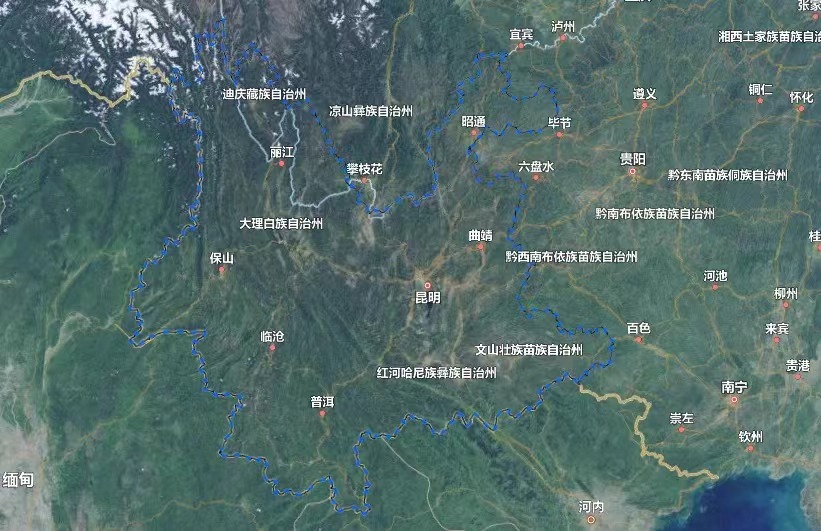
Yunnan Rose Summer is not the mainstream, today Qianjie or Qianjie's personal experience to introduce Katim and Tieka coffee beans. Qianjie planted coffee in Yunnan a little earlier than stores. The earliest street division grew coffee in Guangzhou, the base camp, but due to the limited conditions in all aspects, they turned their attention to Yunnan. In May, 16 years ago, the first batch of coffee and iron coffee beans were planted in the mountains of Yunnan. At the same time, I also figured out why the locals chose Katim. It's very simple, but the ratio of performance to price is not high. Coffee fans who have studied a little should know that Katim coffee beans have the genes of the Robusta coffee bean, which is a hybrid of Timor and Kaddura.
It was cultivated in Katim, Portugal in 1959. Because of its small size, dense branches, high planting density and low requirements for natural environment such as altitude, it is very suitable for commercial coffee. Of course, Katim is also often criticized by coffee lovers because of the genes of his Robusta coffee beans. Katim coffee tastes stronger than other Arabica beans. In fact, in the earliest days, Yunnan introduced a variety of iron pickup, which is called small-grain coffee because its beans are smaller than Robusta coffee. Later, as coffee brands such as Nestl é needed more "commercial coffee beans to adapt to the evolving coffee market, Yunnan began to widely plant high-yield Katim coffee." The more mainstream Katim is called Yunnan small-grain coffee.
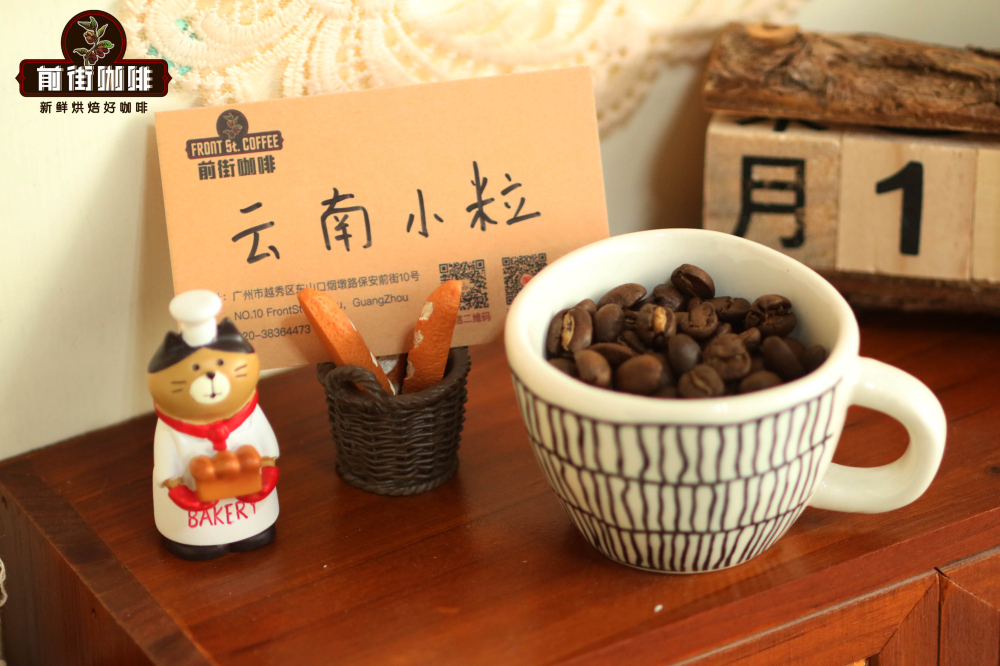
However, Qianjie hoped to take into account the flavor factors other than the yield, so it chose the better flavor of iron pickup coffee beans and named it [Qianjie 2013]. The popularity of 2013 of Qianjie can also be judged by the hot sales. The front street of this coffee uses sun treatment to maximize the sweetness of the coffee to make up for the lack of sweetness caused by altitude. After drying the coffee, Qianjie did not transport it to a roaster as far away as Guangdong. This coffee is roasted moderately in front of the street. At the same time, the performance of the coffee is good: the rich fruit flavor is amazing, if it is not the chocolate flavor of the tail rhyme, otherwise it will feel like drinking juice.
At present, Yunnan small grain coffee mainly refers to the Katim variety, and there are also Katim coffee beans from Baoshan, Yunnan Province in Qianjie. Now let's compare it with the iron pickup beans grown in Qianjie to see the difference between the iron pickup beans grown in Qianjie and the Katim in general Yunnan farms.
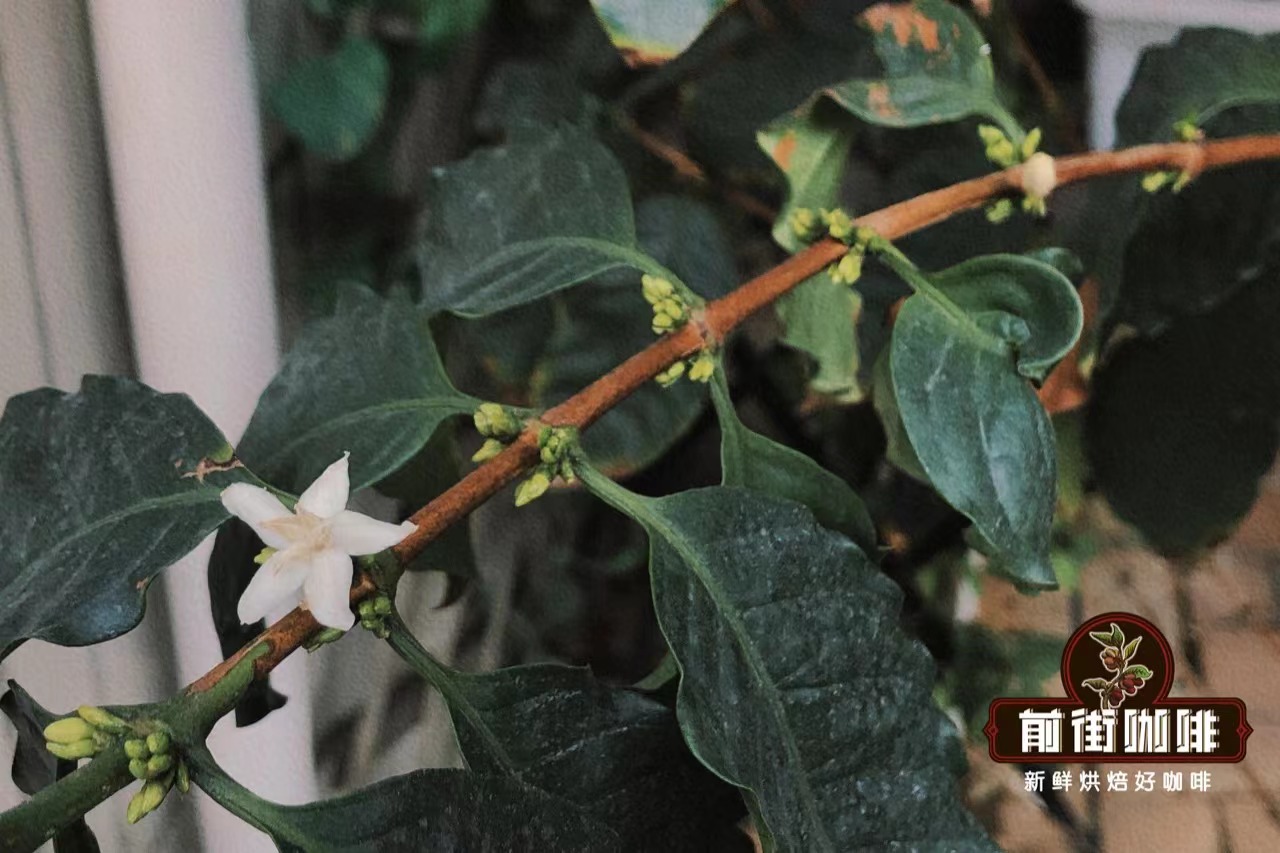
Qianjie Coffee extraction parameters:
V60 filter cup
Water temperature 91 ℃
Ratio of gouache to flour at 1:15
Powder content 15g
Grinding degree (75% of the pass rate of China No. 20 standard screen)
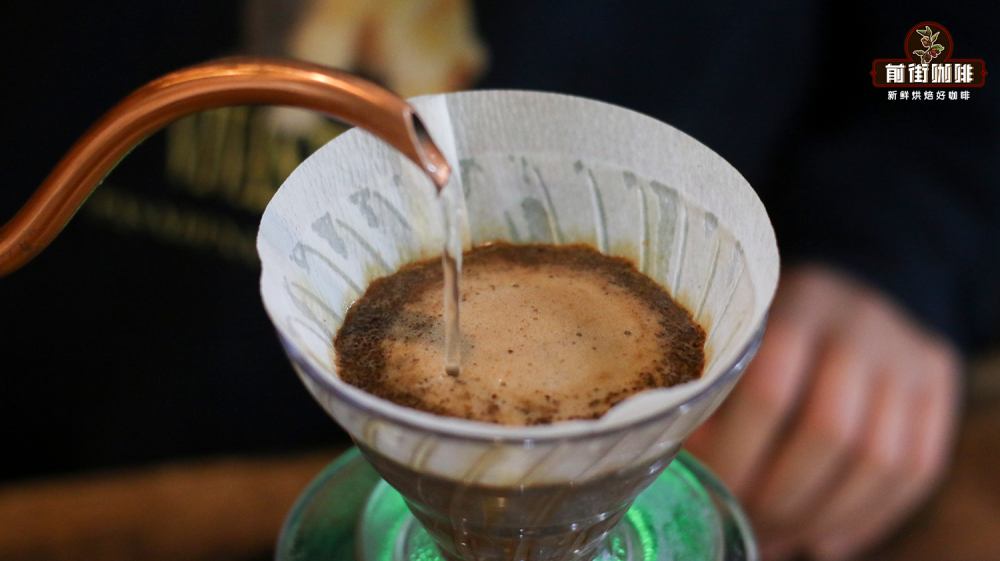
Qianjie Coffee extraction method:
Stew the coffee powder with twice the amount of water, and pour water from the center to the outside to 125 grams. When the water level drops, continue to pour water on the powder bed to the required amount of water, and wait for the water droplets in the filter cup to remove the filter cup. The whole extraction time is about 2 minutes.
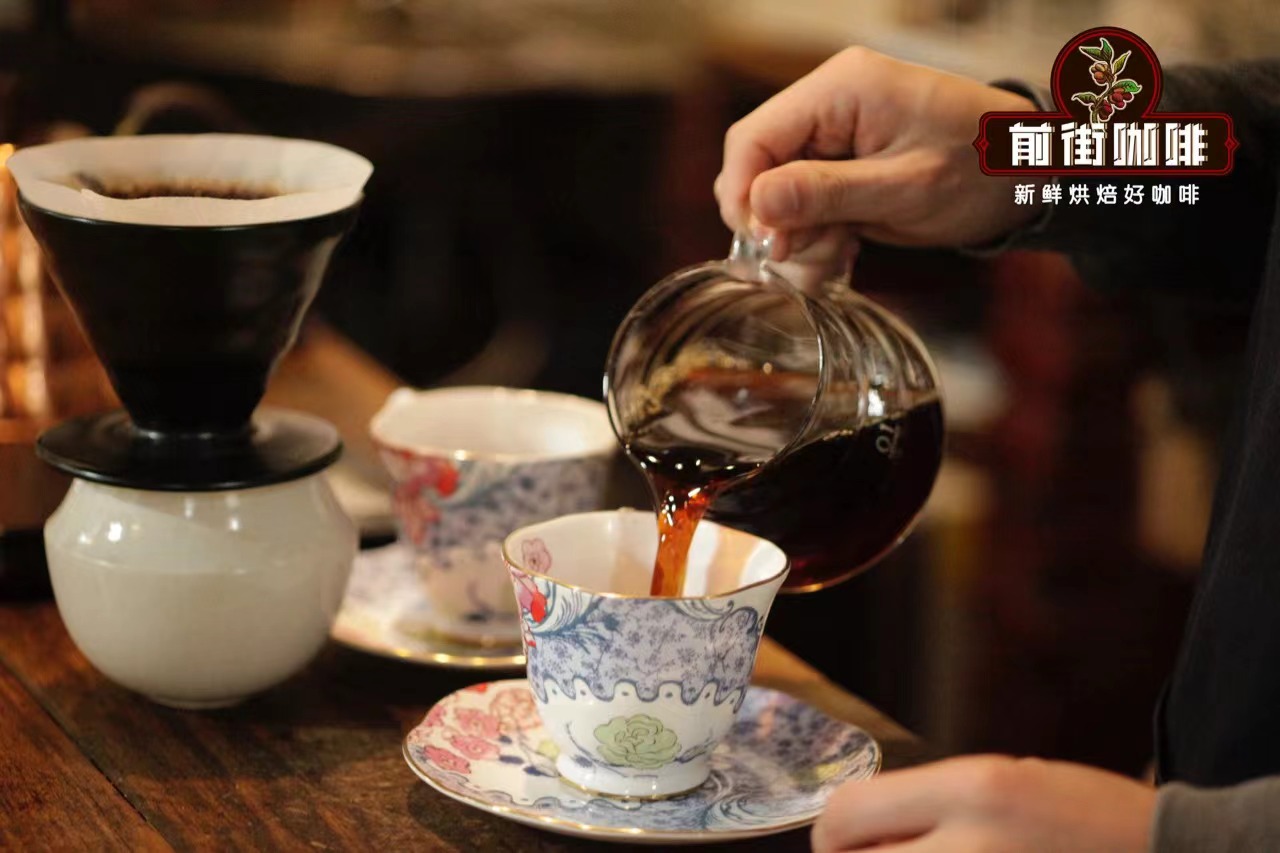
The characteristics of Yunnan coffee beans taste:
Katim: the taste of toast coffee is more nutty and chocolate, with a high thickness and overall balance, and no special sour taste.
Qianjie 2013: the entrance is rich in juicy, slightly herbaceous aroma, smooth taste, tends to be balanced, lively and bright for short plums. Rich in layers, from apricot to citrus from beginning to end. Sweetness tends to brown sugar flavor. Qianjie believes that Yunnan producing area is located in the area suitable for growing coffee, the overall quality of coffee is good. But everything has its pros and cons, and Qianjie will list the advantages and disadvantages of Yunnan coffee industry:
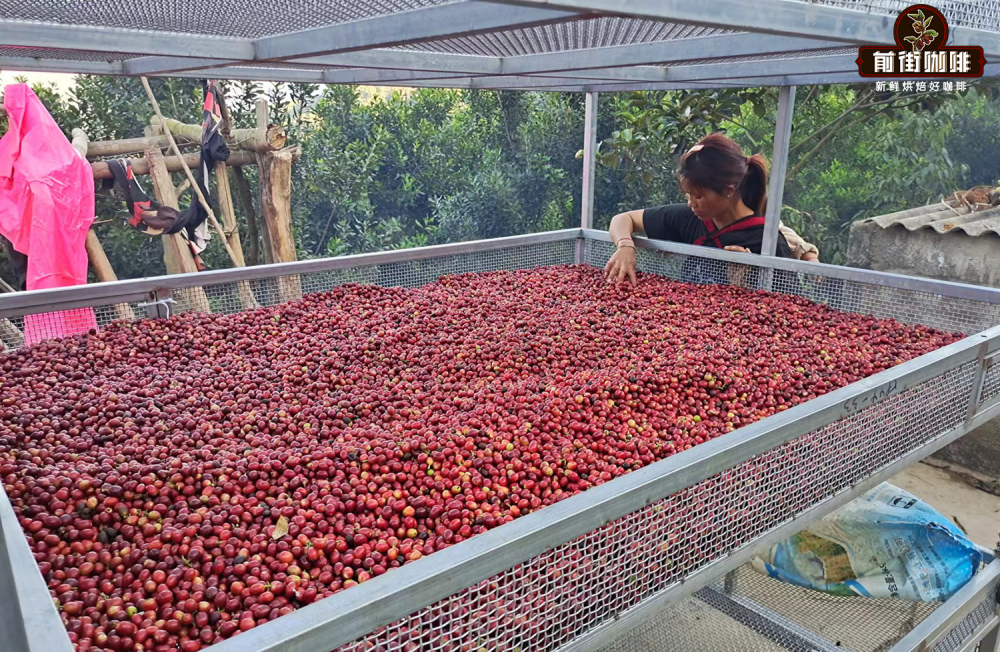
Advantages: fresh, short delivery cycle. The balance number is easy to match. Some fine washed coffee has berries and other flavors, some special treatment methods and new processing methods try, black Yunnan boutique coffee brings some childish tonality and flavor, so that Yunnan boutique coffee can be used as a single coffee. Commercial grade Yunnan coffee beans will be cheaper than imported ones.
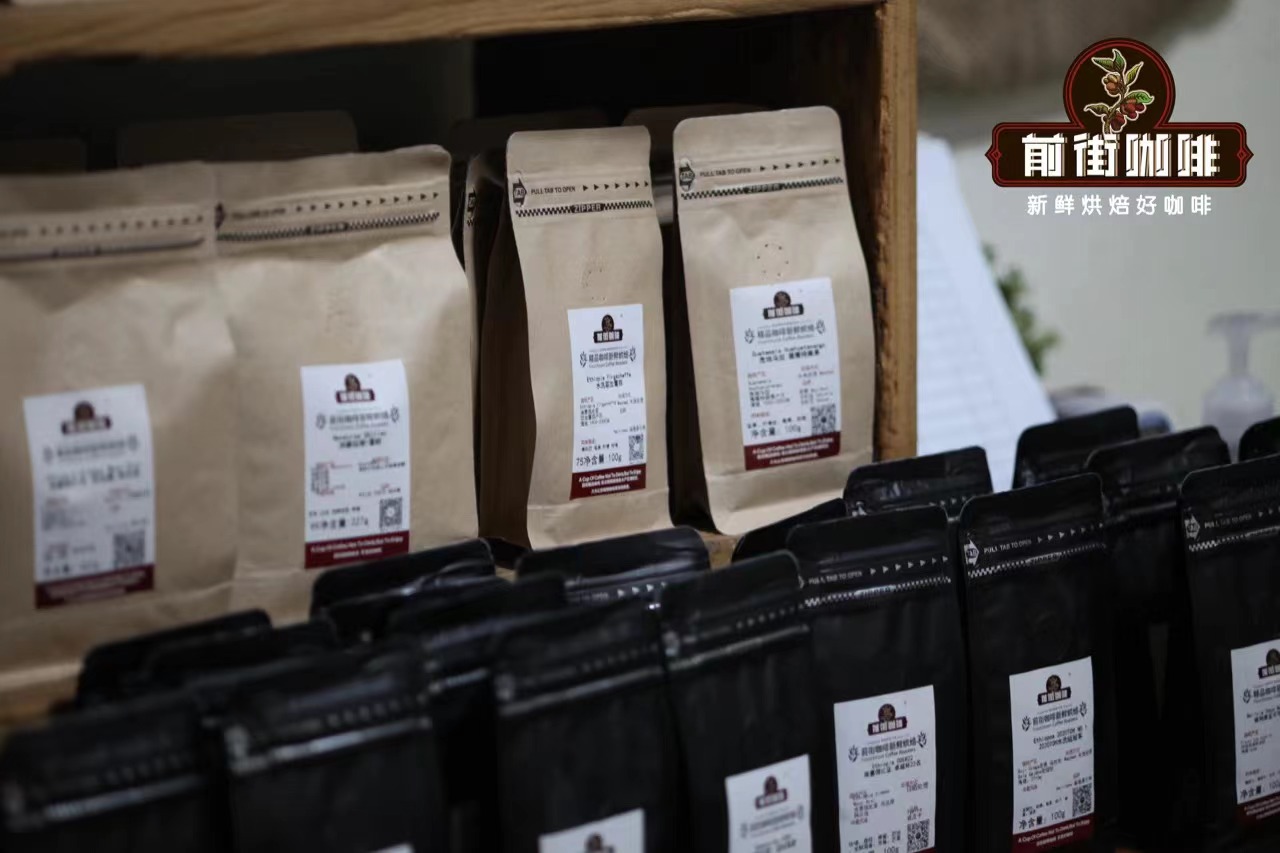
Disadvantages: because of the problem of coffee varieties, the flavor is relatively simple, and the production cost of high-quality coffee is high, so it is difficult to compete with imported high-quality coffee in terms of price. The proportion of domestic roasters is less, the lack of market share, the brand influence of producing areas is not enough; coupled with the inherent prejudice of Yunnan coffee, as well as less awareness of Yunnan coffee and other reasons, the actual consumption of Yunnan coffee in China is still very limited. The quality of Yunnan coffee is not stable, and the standardization and rationalization of planting and processing still need to be improved.
Professional coffee knowledge exchange more coffee bean information please follow the coffee workshop (Wechat official account cafe_style)
For more boutique coffee beans, please add private Qianjie coffee on Wechat. WeChat account: kaixinguoguo0925
Important Notice :
前街咖啡 FrontStreet Coffee has moved to new addredd:
FrontStreet Coffee Address: 315,Donghua East Road,GuangZhou
Tel:020 38364473
- Prev
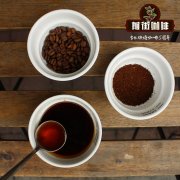
Yunnan has always been the country or tea capital of China, and now it is also suitable for growing coffee.
Professional coffee knowledge exchange more coffee bean information please follow the coffee workshop (Wechat official account cafe_style) Yunnan has always been the rural place or tea capital of China. It also has one of the few regional advantages of coffee cultivation in China: the Tropic of Cancer runs through the province, so that a considerable part of its area is located in the golden belt of coffee cultivation. Altitude is proportional to latitude
- Next

How to drink the local Ethiopian native coffee?
Professional coffee knowledge exchange more coffee bean information please follow the coffee workshop (Wechat official account cafe_style) when the whole world is crazy geisha Geisha, Ethiopia in recent years gave birth to only very powerful coffee, called cloth Abel peony, in 2016 2017 this bean in a row won the Ethiopian domestic competition sunburn group championship, in 2018
Related
- Detailed explanation of Jadeite planting Land in Panamanian Jadeite Manor introduction to the grading system of Jadeite competitive bidding, Red bid, Green bid and Rose Summer
- Story of Coffee planting in Brenka region of Costa Rica Stonehenge Manor anaerobic heavy honey treatment of flavor mouth
- What's on the barrel of Blue Mountain Coffee beans?
- Can American coffee also pull flowers? How to use hot American style to pull out a good-looking pattern?
- Can you make a cold extract with coffee beans? What is the right proportion for cold-extracted coffee formula?
- Indonesian PWN Gold Mandrine Coffee Origin Features Flavor How to Chong? Mandolin coffee is American.
- A brief introduction to the flavor characteristics of Brazilian yellow bourbon coffee beans
- What is the effect of different water quality on the flavor of cold-extracted coffee? What kind of water is best for brewing coffee?
- Why do you think of Rose Summer whenever you mention Panamanian coffee?
- Introduction to the characteristics of authentic blue mountain coffee bean producing areas? What is the CIB Coffee Authority in Jamaica?

